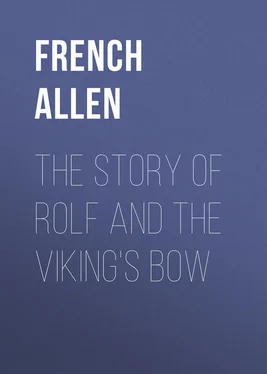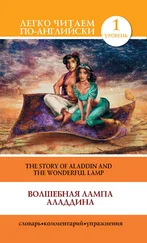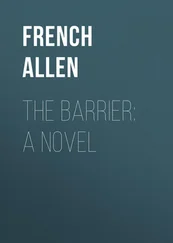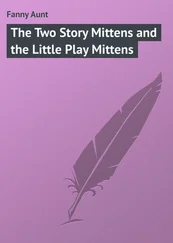Allen French - The Story of Rolf and the Viking's Bow
Здесь есть возможность читать онлайн «Allen French - The Story of Rolf and the Viking's Bow» — ознакомительный отрывок электронной книги совершенно бесплатно, а после прочтения отрывка купить полную версию. В некоторых случаях можно слушать аудио, скачать через торрент в формате fb2 и присутствует краткое содержание. Издательство: Иностранный паблик, Жанр: foreign_antique, foreign_prose, foreign_children, на английском языке. Описание произведения, (предисловие) а так же отзывы посетителей доступны на портале библиотеки ЛибКат.
- Название:The Story of Rolf and the Viking's Bow
- Автор:
- Издательство:Иностранный паблик
- Жанр:
- Год:неизвестен
- ISBN:нет данных
- Рейтинг книги:3 / 5. Голосов: 1
-
Избранное:Добавить в избранное
- Отзывы:
-
Ваша оценка:
- 60
- 1
- 2
- 3
- 4
- 5
The Story of Rolf and the Viking's Bow: краткое содержание, описание и аннотация
Предлагаем к чтению аннотацию, описание, краткое содержание или предисловие (зависит от того, что написал сам автор книги «The Story of Rolf and the Viking's Bow»). Если вы не нашли необходимую информацию о книге — напишите в комментариях, мы постараемся отыскать её.
The Story of Rolf and the Viking's Bow — читать онлайн ознакомительный отрывок
Ниже представлен текст книги, разбитый по страницам. Система сохранения места последней прочитанной страницы, позволяет с удобством читать онлайн бесплатно книгу «The Story of Rolf and the Viking's Bow», без необходимости каждый раз заново искать на чём Вы остановились. Поставьте закладку, и сможете в любой момент перейти на страницу, на которой закончили чтение.
Интервал:
Закладка:
Allen French
The Story of Rolf and the Viking's Bow
PREFACE
From thirty to sixty years ago appeared the greater number of the English translations of the Icelandic sagas. Since then the reading of these heroic tales has so completely gone out of style that their names are rarely mentioned in schools or even colleges. What boy feels his blood stir at the mention of Grettir? How many lovers of good reading know that the most human of all epics lie untouched on the shelves of the public libraries? The wisdom of Njal, the chivalry of Gunnar, the villainy of Mord, the manhood of Kari, the savagery of Viga-Glum, the craft of Snorri, and the fine qualities of Biarni, of Biorn, of Skarphedinn, of Illugi, of Kolskegg, of Hrut, of Blundketil – all these are forgotten in the curious turn of taste which has made the stories of a wonderful people almost a lost literature.
For the Icelanders were a wonderful people. To escape the tyranny of kings they settled a new land, and there built up the laws and customs in which we see the promise of modern civilization. Few early peoples had such a body of laws; few developed such manhood. No better pictures of a law-abiding, rural, and yet valiant race have ever been made than in the tales which the Icelanders had the skill to weave about their heroes, those men who, at home in their island, or so far abroad as Constantinople, made the name of Icelander respected.
We read of these men and this people in stories which, somewhat too "old" for boys and girls, reveal the laws, customs, habits of a thousand years ago. The Njal's Saga, the Grettir's Saga, the Ere-Dwellers' Saga, and the Gisli's Saga are perhaps the greatest of those which have been translated. They are reinforced by such shorter pieces as Hen Thorir's Saga, and the Stories of the Banded Men, the Heath-Slayings, Hraffnkell Frey's Priest, and Howard the Halt. The spirit of those days is particularly well given in that wonderful fragment of Thorstein Staffsmitten which (not being part of any complete saga) has been drawn upon for the closing incidents of the present story. Many other such incidents are preserved, a reference to one of which (in a footnote to – I think – the Ere-Dwellers' Saga) gave the suggestion for the main plot of this book. At the same time, in contemporary writings, we may read of the life of other divisions of the Scandinavian race; the story nearest to this book is the Orkneyingers' Saga.
The main interest of all these tales is the same: they tell of real men and women in real circumstances, and show them human in spite of the legends which have grown about them. The sagas reveal the characteristics of our branch of the Aryan race, especially the personal courage which is so superior to that of the Greek and Latin races, and which makes the Teutonic epics (whether the Niebelungen Lied, the Morte Darthur, or the Njala) much more inspiring than the Iliad, the Odyssey, or the Aeneid.
The prominence of law in almost every one of the Icelandic sagas has been preserved in the following story; and the conditions of life, whether at home or abroad, have been described as closely as was possible within the limits of the simple narrative form which the sagas customarily employed.
ALLEN FRENCH.Concord, Massachusetts,
May, 1904 .
CHAPTER I
OF THE LIGHTING OF THE BEACON
In the time after Iceland had become Christian, and after the burning of Njal, but before the deaths of Snorri the Priest and Grettir the Outlaw, there lived at Cragness above Broadfirth a man named Hiarandi, called the Unlucky. And well was he so named, for he got a poor inheritance from his father, but he left a poorer to his son.
Now the farm of Cragness was a fertile fell, standing above the land round about, and girt with crags. Below lay Broadfirth, great and wide, and Cragness jutted out into it, a danger to ships. It had no harbor, but a little cove among the rocks, where Hiarandi kept his boat; and many ships were wrecked on the headland, bringing fortune to the owners of Cragness, both in goods and firewood. And all the land about once belonged to the farm. Rich, therefore, would have been the dwellers at Cragness, but for the doings of Hiarandi's father.
He would always be striving at the law, and he was of ill judgment or ill luck, for what he gained at the farm he always lost. The older he grew, the more quarrelsome he became; and judgments heaped heavy on him, until at last he was so hard put that he must sell all his outlying lands. So the farm, from a wide estate, became only the land of Cragness itself, and another holding of a few acres, lying inland on the uplands, within sight of Cragness and the sea.
In the time when Hiarandi was young, Iceland was still heathen. He sought his fortune in a trading voyage, and sailed West-over-the-Sea, trading in the South Isles as a chapman, trafficking in goods of all kinds. And he made money there, so that at last when he sailed again for home he counted on a fair future. But the ship was wrecked in a storm, and few of the men came ashore; and Hiarandi himself was saved by means of a maid who dwelt at the place, who dragged him from the surf. So Hiarandi came home on foot, his clothes in tatters, having lost money rather than gained it. Then his father, whose losses pressed heavy on him, struggled no more with the world, but went to his bed and died. And in that summer when all Iceland took to the new faith, Hiarandi became master at Cragness.
Hiarandi was a silent man, not neighborly, but hard-working. An unworldly choice he made of a wife, for he took that woman who had saved him from the waves; she was the daughter of a small farmer and brought neither dowry nor kinship of any power. So men said that Hiarandi had no wish to rise in the world. He lived upon his farm, with two thralls and a bondservant; and husbanding his goods well, by little and little he made money which he put out at call, and so bade fair to do better than his father, for all his poor start in life. And a loving spouse he had in Asdis, his wife, who one day bore him a son.
They named the lad Rolf, and he grew to be well knit; he was not powerful, but straight and supple, and of great craft in his hands. And from delight in the boy Hiarandi changed his ways, and became more gay, going to fairs and meetings for the sake of Rolf. And Hiarandi taught the lad all he knew of weapon-craft, which was not a little. The lad was swift of foot; he was skilled in the use of the sword and javelin, but most he delighted in the use of the bow.
And that was natural, for upon the cliffs sea-birds lived in thousands, hard to catch. The boy went down to their nests with ropes, and took eggs in their season, or the young before they could fly, and both for food. So skilled was he in this that he was called Craggeir, the Cragsman; and no man could surpass him, whether in daring or skill. But there were times when there were no eggs nor fledglings, and from his earliest boyhood Rolf practised in shooting with his bow at the birds, and he kept the larder ever full.
Happy was Hiarandi watching his son, and his pride in him was great. As the lad grew stronger, the father made for him stronger bows and heavier arrows, until at the age of fourteen Rolf used the bow of a man. Then one winter they went down together into the valley, father and son, and watched the sports and games on the frozen mere.
There the men of the place played at ball, and great was the laughter or deep was the feeling. Now Hiarandi would not let Rolf play, for often matters came to blows, and he would not have his son maimed. But when it came to shooting with the bow, Hiarandi put Rolf forward, and it was seen who was the best at that play. For though the men shot, Rolf surpassed them all, not in distance but in skill. He hit the smallest mark at the greatest distance; and when Hiarandi brought a pigeon and freed it, then Rolf brought it down. No one there had seen such shooting. Then those who were not envious named the lad Rolf the Bowman.
Читать дальшеИнтервал:
Закладка:
Похожие книги на «The Story of Rolf and the Viking's Bow»
Представляем Вашему вниманию похожие книги на «The Story of Rolf and the Viking's Bow» списком для выбора. Мы отобрали схожую по названию и смыслу литературу в надежде предоставить читателям больше вариантов отыскать новые, интересные, ещё непрочитанные произведения.
Обсуждение, отзывы о книге «The Story of Rolf and the Viking's Bow» и просто собственные мнения читателей. Оставьте ваши комментарии, напишите, что Вы думаете о произведении, его смысле или главных героях. Укажите что конкретно понравилось, а что нет, и почему Вы так считаете.












